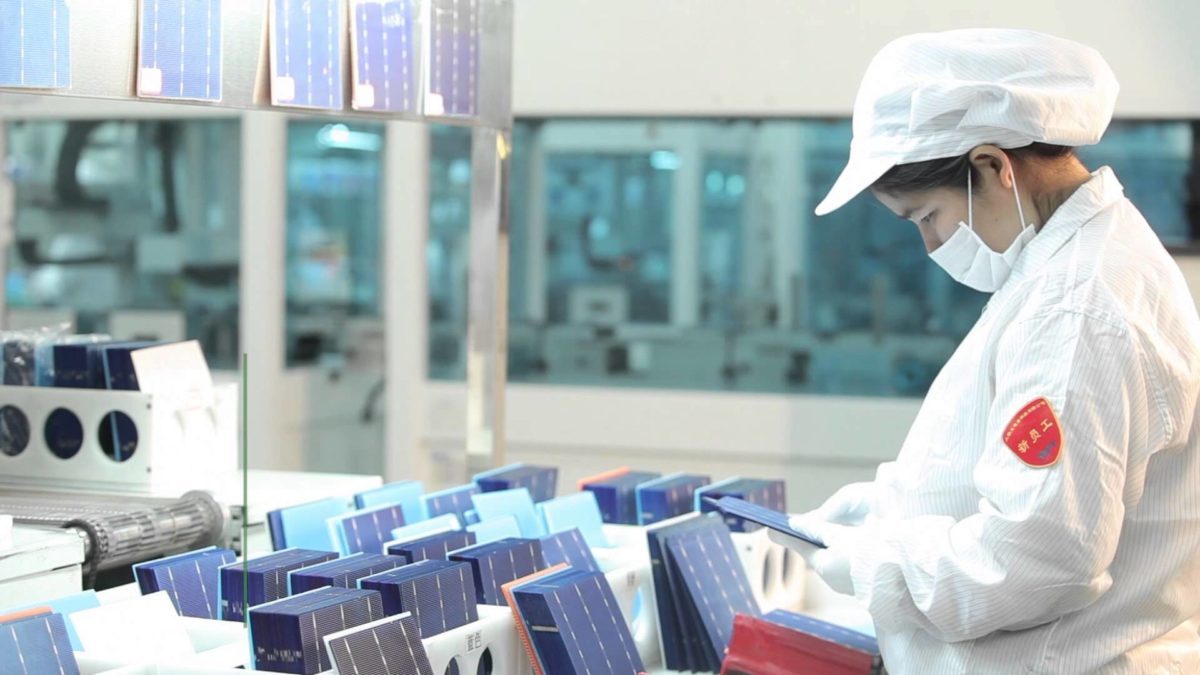Chinese solar panel maker JinkoSolar says it has achieved 24.2% efficiency for a large-area n-type TOPCon monocrystalline silicon cell, and that the result has been confirmed by the Photovoltaic and Wind Power Systems Quality Test Center at the Chinese Academy of Sciences (CAS).
The manufacturer said the cell is based on its HOT cell design and relying on tunnel oxide passivating contact technology. The result was made possible, the company said, by the use of high-quality n-type wafers, selective doping technology and advanced fine-line printing technology.
“N-type HOT technology also demonstrates the competitiveness of JinkoSolar products when compared to current HIT and IBC technologies,” the company said. “The world PV module power record of 387.6W for N-type half-cell module (60P) was fabricated using JinkoSolar’s HOT cell design.” In May, Jinko said its n-type module peaked at 378.6 W, with that result confirmed by TÜV Rheinland Shanghai Co. Ltd.
JinkoSolar broke its own record for p-type monocrystalline cell efficiency – producing a cell with 23.95% efficiency – in May. This result, also certified by the Photovoltaic and Wind Power Systems Quality Test Center at CAS, improved on the 23.45% set in November 2017, which at time was the fifth cell or module record set by Jinko that year.
Last week, new efficiency records were announced by Japanese manufacturer Solar Frontier and Chinese producers Longi and Risen.
This content is protected by copyright and may not be reused. If you want to cooperate with us and would like to reuse some of our content, please contact: editors@pv-magazine.com.









By submitting this form you agree to pv magazine using your data for the purposes of publishing your comment.
Your personal data will only be disclosed or otherwise transmitted to third parties for the purposes of spam filtering or if this is necessary for technical maintenance of the website. Any other transfer to third parties will not take place unless this is justified on the basis of applicable data protection regulations or if pv magazine is legally obliged to do so.
You may revoke this consent at any time with effect for the future, in which case your personal data will be deleted immediately. Otherwise, your data will be deleted if pv magazine has processed your request or the purpose of data storage is fulfilled.
Further information on data privacy can be found in our Data Protection Policy.